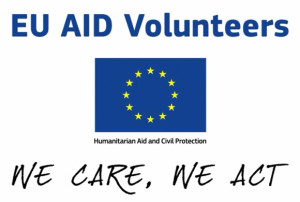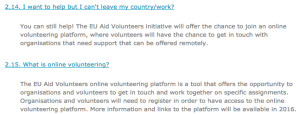A fat, middle-aged, politically-left-leaning woman from Kentucky – me – is not surprised by the anti-European Union vote in the for-now-United Kingdom. I saw this coming. Why didn’t you?
The shock about the vote from “expert” economic policy advisors and political pundits on CNN and the BBC demonstrate shows just how profoundly out of touch they are with the thinking of so many everyday citizens, just like they were in 2005 about France and the Netherlands and how they felt about the EU. I predicted those 2005 results too, by the way. Back in 2005, I sat in Germany each evening after work, listening to all the experts on TV say over and over that there was no way French voters would reject the EU Constitution, and I thought, wow, you are all wrong and I can’t believe you don’t see what’s coming. And when the French rejected that Constitution, as I predicted, those same experts assured the world that the Dutch would approve it, by a wide margin. Again, I shook my head in disbelief at how out-of-touch they were. Three days later, Dutch voters rejected the constitution by 61.6% of voters.
I’m not the brightest bulb in the box, as we say back in my home state. But I listen. I hear. I heard the comments at parties and over lunches. I don’t speak French, or Dutch, or much German, yet I knew what a majority of people were thinking. Why didn’t you?
 I was involved in creating the virtual volunteering strategy for the EU Aid Volunteers initiative as a consultant. I also was paid by the EU to research and write a paper, Internet-mediated Volunteering in the EU: Its history, prevalence, and approaches and how it relates to employability and social inclusion, for the ICT4EMPL Future Work project undertaken by the Information Society Unit of the Institute for Prospective Technological Studies at the European Commission’s Joint Research Centre. Yes, I’ve benefitted from the EU. I’m pro EU – I think the common currency and common safety and trade regulations are a great idea. I think the common agreements about human rights are a great idea. While I think the EU needs a lot of reforms, while I think they’ve made a lot of missteps, I’m pro EU. But I also listen – and I hear the backlash.
I was involved in creating the virtual volunteering strategy for the EU Aid Volunteers initiative as a consultant. I also was paid by the EU to research and write a paper, Internet-mediated Volunteering in the EU: Its history, prevalence, and approaches and how it relates to employability and social inclusion, for the ICT4EMPL Future Work project undertaken by the Information Society Unit of the Institute for Prospective Technological Studies at the European Commission’s Joint Research Centre. Yes, I’ve benefitted from the EU. I’m pro EU – I think the common currency and common safety and trade regulations are a great idea. I think the common agreements about human rights are a great idea. While I think the EU needs a lot of reforms, while I think they’ve made a lot of missteps, I’m pro EU. But I also listen – and I hear the backlash.
My biggest problem with the EU is regarding communications: the EU has done a very poor job of communicating to everyday citizens about what’s happening, and why. It’s done a very poor job of making everyday citizens feel a part of the decisions that are being made about their lives. Whether the EU has or has not over-reached is someone else’s blog. I want to talk about just how the EU talks – and listens.
Here’s an example of an EU communications misstep. The flag requirement isn’t really the problem; the way it is communicated, and so easily spun by opponents, is a problem. Here’s another example of an EU misstep, regarding overturning a long-held Germany road rule. It’s these kinds of mistakes, over and over and over again, that have alienated people on the grassroots level. They feel left out. They feel marginalized. The “leave” votes are from people who feel very strongly that their language, their food, their values and even their history are under attack by the EU. I have heard these statements again and again from people in the UK that voted to leave the EU: “We are now in control of our own destiny” and “We’re tired of being talked down to.” You built this sentiment, EU. This is the result of your poor communications.
What now, Brussels? If you want the EU to survive:
- The EU must immediately employ the same citizen participatory decision-making in Europe that it demands of projects it funds in the developing world. You must discuss with citizens, not just officials. You must ask for feedback from them and show you have heard that feedback. You do a great job with social media. EU agencies and representatives are awesome on Twitter and Facebook. And that’s probably part of the reason people under 50 in the UK voted to stay in the EU. But, Brussels, you do a lousy job at traditional communications methods, and that’s part of the reason people 50 and over voted to leave. Traditional communications methods: lots interviews on TV, including on morning shows and other high-visibility talk shows. Interviews on the radio and local publications. Take your message directly to the citizenry, and get your feedback directly from them. Then show you are listening – talk about what you are hearing, even if you don’t like what you’re hearing. Say loudly when you have altered something because of the feedback of citizens.
- You must celebrate the culture and history of individual European countries. You must demonstrate that you honor individual languages and cultural practices and the different values and the different histories of different countries in the EU family. You are going to have to demonstrate that the word multi-cultural includes absolutely everyone – that’s how you get people to embrace that word, by showing that it includes everyone. You are going to have to have individual EU offices integrate that kind of diverse cultural celebration in all of their work. That doesn’t mean compromising on the standards of, say human rights. That doesn’t mean appeasing extreme right-wing groups. It does mean not freaking out that people want to say “I am French” or “I am Dutch” or “I am English” instead of “I am part of the EU.” I am a Kentuckian. I am a citizen of the USA. I am a citizen of the world. I am not a citizen of NAFTA. I’m no fan of David Cameron, but his comment that “It should be nation states wherever possible and Europe only where necessary” spoke to a lot of people’s hearts – not just right wing nationalists, but also many people who are proud of their heritage but don’t want to force it on anyone else. Ethnic, cultural and gender identifiers are each very personal, precious things, and people, even a left winger like me, are possessive of how they identify and want to be identified. That’s something to keep in mind if you work with… well, people. Nationalism doesn’t have to mean segmentation or segregation. It doesn’t have to mean walls. It can mean, “We’re having an Irish music festival and EVERYONE is welcomed!” It can mean there will be a French cheese festival in a small town in Germany and EVERYONE is welcomed to come try some and buy some (lawdy knows I did when I lived in that small town in Germany…).
- Talk about the people of Europe for whom life isn’t going well. Talk about what everyday Greek citizens went through – and are still going through – because of austerity. Show them sympathy. Show them compassion. Say why, ultimately, and clearly, their life will be better because of your economic reforms.
- Regularly talk about the benefits of EU membership for everyday people. Show it, in statistics and stories. Sell the ideal every day for ordinary citizens. Don’t just assume people know.
You can survive this, EU. But you are going to have to change how you communicate, quickly!!
 CALLS FOR CONTRIBUTIONS:
CALLS FOR CONTRIBUTIONS:

